This week marks 17 years since the release of cult album ‘Six’ by Mansun. Released in September 1998 via Parlophone during the Britpop era, ‘Six’ was like no other album released at that time. Paul Draper, ex-lead vocalist and rhythm guitarist of Mansun took the time from recording his forthcoming solo album ‘Spooky Action’ to tell me all about it.
It seems more and more people are discovering ‘Six’, and more bands are referencing it. Back in the day, Thom Yorke raved about it.
Paul: Radiohead was in the next room to us when we recorded ‘Attack of the Grey Lantern’ and they heard what we were doing with the segueways and using the mellotrons, and I remember Ed (O’Brien) saying to us that it gave them a licence to feel the time was right to do a bit if segueway on ‘Ok Computer’. They had three different bits for ‘Paranoid Android’ and they glued them together in the same way we glued together ‘The Chad Who Loved Me’ from a string section and a band section. Our album came out in the February and theirs came out in April, it started a bit of a change in things because prior to that your main influences and references had to be The Who and The Small Faces, The Beatles and The Jam, you know short snappy pop songs. Obviously, Radiohead had an element of progressive rock in them. If you listen to ‘My Iron Lung’ off ‘The Bends’ that’s what it is, it’s Britpop crossed with progressive rock, and that’s what we did really.
I can’t tell you why I did that but I can tell you what my influences were. When I was a kid I listened to the second half of ‘Abbey Road’ by The Beatles, they were my favourite band even though they had finished 15 years before. I listened to that and thought it was the most musically challenging thing they did, with the big medley and the way the song structures went like ‘She’s So Heavy’. It wasn’t standard verse-chorus, verse-chorus and that really interested me. I had ‘Dark Side Of The Moon’ on vinyl sitting in the house, it was my older sisters record, I would listen to that when no one else was around and think that was odd.
My number one artist of all time is Prince, I know it sounds odd but he had massive elements of progressive rock in his music from what he listened to growing up. If you listen to ‘Purple Rain‘, which I listened to over and over when I was 13, 14, 15, there is real elements of progressive rock in that. If you put it on right at the start there is a church organ with God talking about love and stuff and then it goes into a pop song and then a Jimi Hendrix solo, it’s all over the place, short of having Leprechauns in it, it had those elements. They were my influences and at some point in 1997 that crept into the cool alternative music scene for the first time in probably 20 odd years.
It started with ‘Attack of the Grey Lantern‘ then ‘Ok Computer‘ then ‘Six’, ‘Kid A‘ then it went in through those records. At one point in 1997, Mansun was just as big as Radiohead, but it imploded due to personal problems, but what was left were those couple of records which one of the ‘Six’ has grown and grown with time, so I thought when my career with Mansun came to a stall I would be remembered as the ‘Wide Open Space’ bloke. Ultimately I wasn’t, I was remembered as the bloke who made ‘Six’.
I think there is one good thing in our country and it’s we like people that do something a bit different and I think that was a bit different. You can break it down and pick all the elements out of specific things, overall as a piece of work, a piece of art, a record, it was really different for the time, it wasn’t The Bluetones and it wasn’t Oasis, it was really different. A lot of the kids who bought it have grown up and a lot of them have gone into record company’s and become journalists, and people remember it, it just and took on a life of its own really, and the more I meet people and see people around, literally everyone always mentions that record. I saw last year they had the top 100 prog records of all time and of course, Radiohead was up there and Muse was up there and Mansun was up there as well, I think ‘Six’ was at number 70. For a band that never got to the heights, if you like we were only seen as a mid-table Britpop band. I think that record transcended the band, so I’m really happy to talk about it these days.
It’s interesting that you mentioned Abbey Road I have always thought of ‘Six’ as an extended version of the second half of Abbey Road.
Paul: That was absolutely one of my crucial influences on Mansun in general with the way we would segueway things. I wouldn’t say that The Beatles were massively influential, in our arrangements. We didn’t play the drums like Ringo or anything like that, a lot of the bands did in the 90s, but yeah ‘Abbey Road’ was my main influence I thought it was musically challenging. I wasn’t massively influenced by the progressive rock world, It was The Beatles and the second half of ‘Abbey Road’ and the first side of ‘Parade‘ by Prince. If you listen to the first side of ‘Parade‘ or the first half on CD, you hear that influence on Prince, he must have had his influences from whatever it was, I know he was into all sorts of things like Gary Numan and Joni Mitchell, but somewhere in his lineage of what he was listening to he heard that thing for segue ways and melodies and he incorporated that into his world the same as we did.
Not only did the music you make sound different but the subject matter was also completely different from what anyone else was saying. With ‘Six’ there were no characters like in ‘Attack of the Grey Lantern’ but you are talking about Winnie the Pooh and Dr Who and The Prisoner.
Paul: I suppose there are 2 ways you can do it in music, you can fake it up and sing about flying through the sky or Stonehenge or whatever you want to sing about (laughs) or you can sing about things that are specific to your life, that might not resonate with other people. For the first album, my influences on that were The Goon Show and Monty Python and characters. I loved Monty Python as a kid and obviously, that massively influenced The Beatles, which was again a big influence of mine, not necessarily in the way you would think but in the way that Lennon took that comedic value of The Goon Show and incorporated it into the later Beatles stuff. That is what ‘Attack of the Grey Lantern‘ was, the characters were a specific idea and I used characters to tell a story, which is all about a group of people from a bizarre northern English city which was my experience, and then with the second album, I had exhausted that idea so it was what do I do next?
It was just basically what was around me and what I knew as a kid, my two favourite TV shows were The Prisoner and Dr Who, so I went straight to them for the influences in the album. I wanted to incorporate Chad on the album as much as possible but he wasn’t big on the lyrical side apart from a couple of tracks, he was a big reader so I dug out lots of his books, there were all sorts of bits in his books but the bits that appealed to me were the religious things, I grew up as a Catholic in North Wales and I had to travel about three towns across to get to the Catholic school and I had a slightly skewed view of it all, and he had loads of books on Scientology on Taoism which got us into Winnie The Pooh. We weren’t specifically into Winnie The Pooh it was an allegory in the same way ‘Six‘ was an allegory for progress in the modern world, and the character ‘Six’ from The Prisoner. We just found a common theme which was the number ‘Six’ and we tried to build an album out of the number ‘Six‘ (laughs), and instead of painting pictures with characters, we used our real influences. We probably went a bit over the top, the cover was comedically over the top.
Some people really got it, but at the time, the height of Britpop, the reason it got overlooked is that the critics looked at it and thought “What the fuck is that? It’s mad!”. Of course, a lot of those critics now were kids then and got it and took it home and Mansun might have been in their pool of bands that they liked and it just stood out to them as one of their favourite records. That’s how it’s snowballed with time really because there is a lot of depth in it, even down to ridiculous things, we would incorporate anything with the number ‘Six‘ in it. There is a bit out of Sesame Street in it, where it goes 1,2,3,4,5,6,7,8 (laughs). If you listen carefully there is a bit out of Sesame Street in there somewhere, I can’t remember where, but there are hundreds of little references that all connect to each other to do with the number ‘Six’ and to do with Chads books and then, of course, we got deeper into talking about religion. It’s like the Catholic Church in ‘Cancer’ and Scientology, all sorts of things really, anything that we knew about and what was our reality, our world came out in that album.
When you went in to record the album did you have all those ideas or was it all off the cuff and throwing everything at it in the studio?
Paul: Yeah, I don’t think anyone who puts together an album like that comes up with all this upfront and then creates the music around it, it sort of evolves as the first one did, but you have the idea that you want to do something a little bit more other than a load of pop songs together, although I’m not adverse to that some of my favourite albums ever were a collection of pop songs, ‘With The Beatles‘ is an amazing album. In terms of that movement which was like a sub movement inside the whole Britpop thing, I think Suede got there first with ‘Dog Man Star’. That was the first hint of what was going to come out of that, which evolved into our album and ‘Ok Computer’ and then out of all that the music scene went stale for a while and a bit plod rock, then Muse came out. You can see how the lineage of how those bands evolved, but I can only tell you where my influences came from and they were from a long time previous to that period.
You were very prolific during that period that you also recorded ‘The Dead Flowers Reject’ album as a companion piece to ‘Six’.
Paul: The idea was to do enough material to make an album where we could have some relatively straight forward pop songs in case it all went tits up with ‘Six’, the thing is it did go all tits up with ‘Six’ or I wouldn’t be here now otherwise (laughs). That other album was made at the same time, we didn’t come back later and just throw together the B sides, it was all done together. We had been piecing together the ‘Six’ project and then we would come off it for a day and record those songs. The very first one we did was ‘King of Beauty’ and I just did it and I thought I don’t want to do another album of these pop songs, so the second thing we did was the song ‘Six‘, which was a crazy idea really because everyone said as an artist you have to be original and don’t copy any other styles of music, get your own style, and I think Mansun really did have its own sound on the first album, but me just the way I thought and my obtuse view of making records, I thought “okay fuck that! I’m going to do a record that goes through six different styles of music and back to the start and see if I can do it“, so it was just an exercise in doing that, but that’s all it was really. I was just trying to piss off the record company or the managers and the rest of the band (laughs). The fans voted that their favourite track we ever did in an online poll. There as lots of oddities in Manson like that, loads of odd clues and things in the records.
How did the label react when they first heard the finished album?
Paul: I don’t think we ever saw them for about 6 months after that. We had fallen out with the label before that over a song called ‘Disgusting’ off ‘Attack of the Grey Lantern‘. It was supposed to come out as the big single which was supposed to make us into a big pop band, we ended up having a big argument about it, so they put out ‘Tax-loss’ as a tax loss and it all got buried and then they just left us to one side to make ‘Six. I don’t think they noticed, you’ve got to remember it was the height of Britpop, so you always had massive pop albums by bands coming out.
It doesn’t happen now if you get a band now that hits number one like Royal Blood and its big news, but back then every other week you would have Catatonia at number one, Ash at number one, The Bluetones at number one etc. Then the big guns would come out like Pulp and Suede and Oasis, it was every other week. Our record wasn’t really noticed at the time, it grew from the fans who bought it. I know it sold 100,000 in the UK and probably some of those people thought it was rubbish but a lot of people it really affected and it became their favourite album. Although because it was at the height of Britpop it got swamped out by those Britpop records. A lot of those records are forgotten today and ‘Six’ isn’t.
For the American release it was heavily edited, surely that must have pissed you off a bit.
Paul: Yeah! both of the albums were edited but there was a very specific reason, we didn’t sign to EMI in America, we did a separate record deal with Epic in America who Oasis were signed to and we thought that they might be a better option for us because they were hot at that time and were selling a lot of records. Of course in the end all they did was bastardise the records and never even promoted them. I think we ended up doing three trips to America, we did some decent shows, a couple of tours and I think we had one hit with ‘Wide Open Space’ it had some MTV plays, no different to other smaller British bands that didn’t make it over there. I’m not a fan of the 2 American versions of those records, but as time has gone on and not many of them were printed up, they have become collector’s items amongst the fans. I know in Record Collector magazine, the Mansun records are quite heavily priced, they are very sought after. I think in time those records will become collectable, but they are not sanctioned by us and they are not what they are supposed to be, they are just oddities of us being a very low priority on a foreign record label.
‘Kleptomania’ sells for a lot of money too.
There was a couple of really good songs on there, ‘Keep Telling Myself’ was a good song, ‘Home’ was a good song, but some of it was too derivative. I was a spent force then, so I left in the end that was where we were when we split up. In a way, that album was a disaster at the time but it has become quite sought after amongst fans because the band has grown with time in stature and become cooler than what people perceived it at the time, like an odd middle of the range Britpop band.
I think now it’s a really interesting record especially lyrically it’s really interesting where I was at as a person, what I was saying in the songs, it’s quite dark. I think at the end the very last song ‘Good Intentions Heal The Soul’, I think lyrically that was brilliant and a good sentiment to leave the band on. I think the piano bit at the end was one of the best melodic things I ever did. I suppose people will start talking about that record in time, and how and why it ended up as it did, it’s an interesting end.
It would be good to hear ‘Six’ played live in its entirety, I’m sure it would be very complicated to perform live, but that probably won’t happen without Chad.
I’m not adverse to doing something at some point with it or with some of the songs. I know for instance that the Mansun tribute band, ‘Tax Loss Lovers’, are doing some festivals and a headline show in London. They played the album in its entirety at the Deaf Institute in Manchester as a special one-off show, so it’s doable, and I know they are touring next year, whether they will get to do the whole ‘Six’ album or various Mansun stuff I don’t know. You’ve got to remember it was a guitar album, there’s not that much studio trickery on it, it was all done with guitar pedals.
Are there any plans to release a remastered deluxe version of ‘Six’ with all the B sides including ‘The Dead Flowers Reject Project’?
Paul: Yes there is a lot of legal wrangling going on at the moment and a lot of business issues but we are working on that, I’ve been on that for quite a while now. The entire catalogue is going to be reissued, depending on how, why and who and the business shenanigans that are going on behind the scenes. It’s to do with EMI’s take over by Universal Music and the European Anti Trust Commission has made Parlophone sell off part of its catalogue, so we don’t know finally where the Mansun catalogue is going to reside. As soon as we know it’s all going to get a big reissue, we have got a lot of plans for that. We are talking about maybe ‘Mansun Live at the BBC’, including all the video and all the Peel Sessions, a box set of the EPs, and we also have a full live concert, a video shot from the ‘Six’ tour, I think there is some bootleg rushes of it on YouTube.
That concert footage is all going to get put together and released with maybe a premiere in London at a small cinema. So there is a lot that’s going to be done with Mansun in the future, to build the reputation of the band. We started off as a studio project but in the end, we got voted best live band in the country a couple of times by the music press, we really did become a great live band.
That must have felt good considering the music press used to slag off your playing in the beginning, even though the band openly admitted you weren’t great live then.
Paul: I always describe Mansun like the Sex Pistols and I’m not doing that to glamorise us or to make us sound punk or super cool. We were a bunch of no-hopers who couldn’t really play, and the music press were literally laughing at us, until we put out the first album and it had killer songs like ‘Wide Open Space’, ‘Disgusting’ and ‘The Chad Who Loved Me’, and odd subversive things like ‘Tax Loss’ and then everything changed and we got sub sued into the Britpop world and we stepped into the media and did ‘Top of the Pops’ and ‘TFI Friday’ and got in the charts, then we made ‘Six’ and then everyone went “what the fuck??” (Laughs). It was an odd journey about a band who couldn’t really play, but then made a couple of records that really lasted and resonated with people and then imploded very quickly.
It was absolute chaos, the tours were chaos, there was a lot of drugs going around, not necessarily me, I joined in at the start then I dipped out but there was a lot of drugs that had a lot to answer for Inthe band. One or two members did way too many drugs and a lot of people interfering, it wasn’t handled properly and it ended in disaster. That’s why I always say that Mansun was the Britpop Sex Pistols, it really fucking was. We were a group of working-class lads who imploded very quickly, but like a lot of those rock and roll stories, people like to glamourise the stories over time. Sometimes a band can be just a single that they remember, as a great single. I thought ‘Wide Open Space’ would be it for us, but what people remember is the ‘Six’ album.
After ‘Six’ everything was taken out of our hands and we were made into a pop group, we were stylised. People saw that there were some really great songs on the ‘Little Kix‘ album, ‘Until The Next Life’ is a great song, ‘Comes As No Surprise’ is a great song, ‘I Can Only Disappoint You’ is a great song. What’s left is an odd story, people have spoken to me about writing books about it, I don’t think I’ll ever go on the record and tell the true story, there are one or two people that know. At the end of the day people, always say bands split over musical differences but they never do, it’s all to do with money and drugs and all sorts of shit.
It was a disaster that hurt me for a long time and overtime getting back into music and working with Catherine AD and doing The Anchoress album with her and her joining Simple Minds and then the big re-interest in Mansun and loads of record company’s coming on board wanting me to do a solo album and doing that, now I just look back and think “Wow! what a crazy life“, summarised by that crazy record (laughs) I just accept it now.
And now you have moved on and decided to put together a solo album called ‘Spooky Action’. How far on is it?
Paul: Originally I started on 19 songs and whittled that down to 15 which I’m working on now. We have been in the studio and recorded all of the backing tracks for all of the songs, so they’re all in the bag. What I’m doing now over the next 2 months is literally just doing overdubs on them. I’ve done vocals on three of the songs and I’m going to be doing more with some guitar overdubs. All the drums and bass and the basic rhythm guitars are done. I’m just doing all my lead guitar overdubs and some synth overdubs and vocal overdubs now, that’s where I’m at with it now. You will hear about it first thing in the new year about how and why it’s going to come out. We found a really great record company to work with.
It came naturally, instead of staying in my studio and writing and producing with other things because Catherine joined Simple Minds and she is off all over the place touring with them. Our studio project was finished and came to a halt and I had to do something else. The obvious thing was to dig out my old songs which were called ‘Spooky Action‘ and finish it off and put it out. That in itself has ballooned now there’s more interest from that and a lot of people are really interested in hearing it. I’m viewing it as me producing myself from the past if that makes any sense. I can’t step back into putting mascara on and jumping around the stage and doing all that, but what I can do as a producer is step back and look at my previous self ten years ago and think “okay I’m going to finish this record off now, how can I make it relevant in the modern world?” A lot of production is just drum sounds if you listen to drums from the 60s and the 70s even the 80s, you know what they sound like. There is a real modern sound to records and because I produce records I know what that modern sound is, so I’m applying that modern production technique. I like using a lot of old analogue gear, a lot of valves and tubes. I’m singing all my vocals through an old EMI Rev 47 microphone, that tells you exactly who I am, I fucking hate singing, I like studios but I can view the whole project as producing myself, so when it’s finished I can look back on it as a nice companion to The Anchoress record that I’ve just made with Catherine, they will be two peas in a pod I think, one after the other.
What sound and subjects can we expect to hear on ‘Spooky Action’?
Paul: ‘Spooky Action‘, the whole album is about what happened to me in Mansun, dead simple! It’s all about the events that happened in the band and the splitting up and the devastation of the person that was left afterwards, that is simply what it’s is about, the entire thing. I started writing those words at the back end of 2003 and in 2004. It was a dark place for me, I was drinking a lot, not in a good place, writing about the disaster that had unfolded in my life at that point, and I’m finishing off those songs now and it’s all about what happened.
I would describe ‘Kleptomania‘ lyrically as the chronicle of the dying of a rock band and I would describe ‘Spooky Action‘ as someone writing an album from the aftermath of coming out of a rock band that was a disaster and looking back at the events and the people who shaped that disaster.
Did you feel better while you were writing the songs, was it therapeutic?
Paul: I don’t know whether I felt better writing about it, but they were the thoughts that were in my head. Anything that I’ve ever written except ‘Little Kix‘ was always just where I was at. ‘Attack of the Grey Lantern’ was my big idea to do a concept album, I think it was literally the only concept album that hit number one in the British charts in that decade.
‘Six’ was us searching around for a new idea for an album, and it came from what was around us, our childhood and what was around at the time and then we were battered into being a pop group with ‘Little Kix‘, so I left loads of subversive clues in ‘Little Kix’ as to why we were there. We were told absolutely definitively “You are not allowed to have any prog rock elements in the album“, so that’s why the album fades in and it’s one second longer than ‘Dark Side of the Moon‘, just to piss the record company off (laughs) and then it ends with a big Dave Gilmour pastiche guitar solo to piss them off, even more, the reason it cuts dead is to replicate the end of ‘Abbey Road‘, to show where my influence from prog-rock comes from, so the whole thing was symbolic. Lyrically at the start of ‘Little Kix’, it says on ‘A New Beginning’, which means we had to start again as a band and drop all our prog-rock elements.
I had the lyric “Make it rhyme make it bland, make it sell“. I always had a rule that no Mansun lyrics could rhyme, that was our thing. There were no rhyming couplets in the Mansun records. I just thought that it would be an artistic challenge to not have anything to rhyme, that’s why it says “Make it rhyme to make it bland, make it sell” because we were told to have individual tracks no prog-rock elements and rhyming lyrics, so that’s what ‘Little Kix‘ became. We did the song ‘Fool’ which was from a book by a songwriter called Jimmy Webb, he wrote ‘Wichita Lineman’, he said “Any idiot can have a song called ‘Fool‘ “, so I just called it ‘Fool’ and had the generic aaahhhhh, ‘Twist and Shout’ opening. It was a pastiche of a pathetic pop record and they put it out as a single, so even that in itself to me is a very subversive act and they fell for the whole thing. I never thought of myself as a singer-songwriter or as a record producer, I just put tracks together, it didn’t matter what they were or how they were, everything had a meaning, not a lot of people got it but some people did get it.
If you didn’t have those restrictions imposed on you by the record company, would ‘Little Kix’ have been a continuation from ‘Six’ musically and lyrically?
Paul: Yeah! If we had been supported on ‘Six‘ and everything had gone swimmingly, I don’t know where we would have gone but I think we wouldn’t have gone down the ‘Little Kix‘ route that’s for sure, I really don’t know I literally can’t tell. We probably would have ended up doing one long song on an album, a 50-minute long song with different sections in it, and not done any singles, I don’t know.
‘Little Kix’ is still a really good album, in my opinion, there are some great songs on it.
Paul: I think technically ‘Until The Next Life’ is the best song I ever wrote, it took me 2 weeks to write that song, it’s really technically interesting. ‘Comes As No Surprise’ is another good one on that. The opening track ‘A New Beginning’ which is symbolic that we weren’t allowed to do the prog-rock stuff anymore was good and ‘I Can Only Disappoint You’. ‘Fool’ didn’t really work out, it was supposed to be a subversive comment on pop singles because that’s what we had to do, ‘Electric Man’ didn’t work out, that was supposed to be like the ‘Tax Loss’ of the album, a piss-take of ‘Star Man’ by David Bowie. Some elements worked out on that album and some elements didn’t, it didn’t gel and that was really the end.
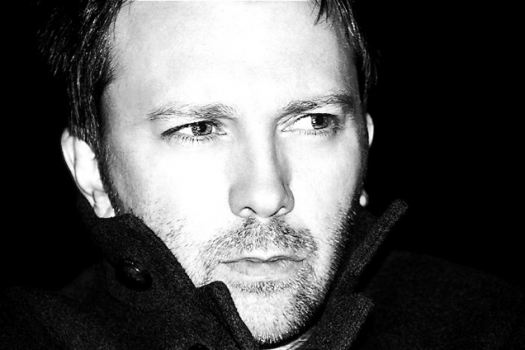
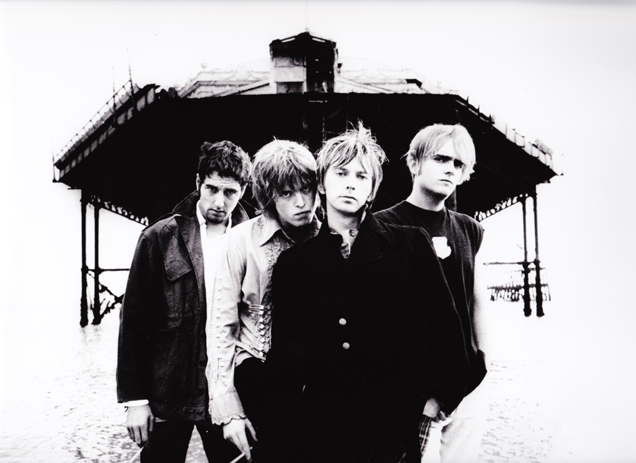
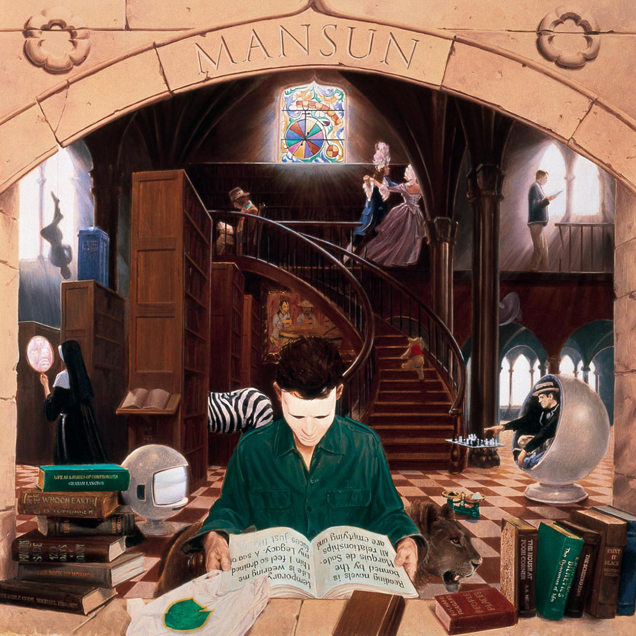

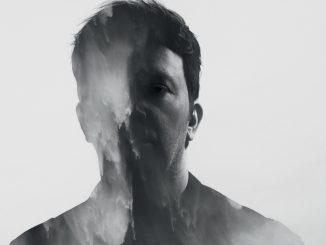

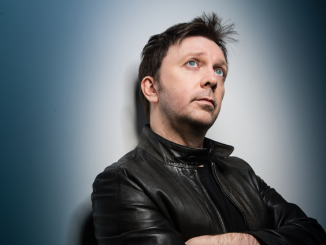
Be the first to comment